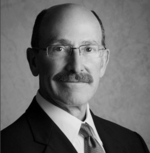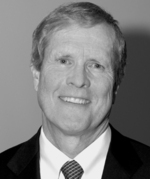Governmental Overreaction May Jeopardize Patient Choices for Compassionate Services that Spare Terminally Ill Patients and Families Needless Suffering
By Barry D. Epstein, J.D., and Brent Green
A recent Washington Post article exposed dubious hospice business practices, including alleged Medicare fraud. The controversial article focused on several large, for-profit companies that today dominate an industry historically served by nonprofits and religiously affiliated organizations.
Governmental entities, taxpayers, and law-abiding hospices should justifiably feel betrayed by any proven fraud. But regulatory overreaction could sacrifice the vital purpose and proven benefits of hospice care.
Misguided regulation could squeeze out historically successful nonprofits. Hospices could be penalized for accepting patients with more complex terminal diseases, those who do not die soon enough in the view of authorities.
All stakeholders in end-of-life (EOL) care need to reconsider the higher calling of hospice. Otherwise, terminally ill patients may soon have fewer options to facilitate their passage to the most pain-free and peaceful death possible.
A Matter of Choice More than Money
In 1983, hospice became a Medicare option for eligible persons, defined as those who have been diagnosed with a terminal condition and certified by two physicians to have six months or less to live. Terminally ill patients are thus entitled to a range of pain management and therapeutic services.
The Medicare hospice benefit has a humanistic underpinning, as championed by Dr. Elisabeth Kubler-Ross, author of On Death and Dying, a bellwether book published in 1969. Palliative care can ease pain and discomfort associated with terminal conditions without attempting to cure the patient. Services embrace the whole person and family and can provide relief from physical, emotional, and even spiritual suffering.
Further, curative procedures and therapies deemed ineffectual can sometimes cause unneeded distress while having adverse financial impact on families. Over-treating terminally ill patients also inflates national health care expenditures.
Today, Medicare pays for a major percentage of hospice care in the United States, but the regulations contain explicit rights and restraints. An expenditure cap has always been part of the authorizing statute. A patient making this choice must also voluntarily relinquish a claim for Medicare coverage of curative procedures for the same terminal illness.
The hospice benefit or election includes an initial 90-day period, a second 90-day re-certification period, and "an unlimited number of subsequent 60-day periods." Services must be delivered with informed consent and can be revoked or reinstated upon a patient's request, subject to certain qualifying conditions.
Both an attending physician and a hospice medical director must confirm patient eligibility, provide documentation, sign this certification, and, as of 2011, provide a supporting written narrative. A newer regulatory precaution requires an in-person assessment prior to a third period.
Caught in the Middle of Budget Balancing and Fraud Fighting
The Washington Post article presents a picture of the hospice benefit as vulnerable to abuse by providers and therefore rightfully targeted by governmental officials for scrutiny. Oversight comes primarily from the Centers for Medicare and Medicaid (CMS) and state survey agencies as well as the Office of Inspector General if criminal conduct has been implicated. But to accept recently elevated scrutiny as a sweeping denunciation of the entire hospice industry would be an imprecise understanding.
The explosive growth of hospice providers since 2000 can be attributed to for-profit enterprises, according to the 2012 Report to Congress by MedPac, the independent commission created to oversee all federal health care expenditures.
The for-profit sector also accounts for much of the alleged fraudulent billing attributed to longer periods of care for patients who never initially met eligibility requirements. Not all or even most for-profits engage in falsified billing, but some have, and this dark shadow has been falling on the nonprofit sector as well.
Mary Labyak, the late CEO of Suncoast Hospice in Clearwater, Florida, the nation's largest nonprofit hospice, often made clear through her remarks that there are noteworthy differences between for-profit and nonprofit hospices worth consideration, from financial management practices to standards of care.
Nevertheless, MedPac reports that between 2000 and 2012 the median length of hospice stay "remained stable at approximately 17 or 18 days." This typical length of stay is dwarfed by a qualified patient's full legal entitlement of up to 180 days (and sometimes beyond).
Likewise, Medicare profit margins reported by hospice providers across-the-board for 2012 were projected at 5.1 percent. These modest margins hardly point to egregious profiteering. Yet MedPac and CMS decry long hospice lengths of stay without drawing sufficient distinction between appropriate and inappropriate usage.
Unintended Consequences
MedPac's report offers more forceful commentary: "...with very short hospice stays, the concern is that patients enter hospice too late to fully benefit from all that hospice has to offer...Of course, there will always be some very short and very long stays in hospice because of uncertainty in predicting life expectancy and unforeseen events..."
An aggressive push to bring health care expenditures under control while combating fraud is understandable. But one unintended consequence of nonflexible oversight and enforcement could be to diminish the number of hospice providers and scope of services so valued by patients and families.
Hospice care embraces the inherent imprecision of science when it comes to predicting the course of a terminal disease or the exact moment of death. Yet, because of alleged abusive practices, governmental regulators are turning their backs on this key premise while demonizing lengthy stays as suggestive of fraud.
To the contrary, more rather than less hospice utilization should be the goal for a rapidly aging society. All stakeholders benefit from hospice care that begins earlier rather than later, regardless of whether the focus is quality-of-life or cost containment.
Given recent studies showing the cost savings of hospice care, why not defer to the higher calling of personal choice when it comes to death and dying? Hospice is an alternative that must not be unduly shackled by spreadsheets, length-of-stay metrics, and budgetary micromanagement.
Congress honored palliative care for terminally ill patients at the behest of American citizens, thus enabling Medicare and Medicaid funding. The higher, humanistic calling of hospice must not be regulated or prosecuted out of existence.

Barry D. Epstein, J.D., President, Savvy Aging. During his 25+ year career as a health care attorney, educator, author and retirement community Executive Director, Mr. Epstein has counseled numerous providers, allied professionals, associations, staff and families on legal, operational and real life aspects of long-term care, including hospice. He has served on Colorado’s Assisted Living Advisory Board, the Legal Advisory Committee of the Assisted Living Federation of America (ALFA) and as President of Colorado’s largest Alzheimer’s Association Chapter.
 Brent Green is a creative director, author, speaker, social commentator, trainer, and marketing consultant focused on Baby Boomers, the generation born between 1946 and 1964. He has spoken for National Hospice Work Group, New Mexico Association for Home & Hospice Care, Florida Hospices and Palliative Care, Community Hospice in California, and has provided in-depth commentary for a PBS hospice documentary produced by Hospice of Michigan, entitled Except for Six.
Brent Green is a creative director, author, speaker, social commentator, trainer, and marketing consultant focused on Baby Boomers, the generation born between 1946 and 1964. He has spoken for National Hospice Work Group, New Mexico Association for Home & Hospice Care, Florida Hospices and Palliative Care, Community Hospice in California, and has provided in-depth commentary for a PBS hospice documentary produced by Hospice of Michigan, entitled Except for Six.
